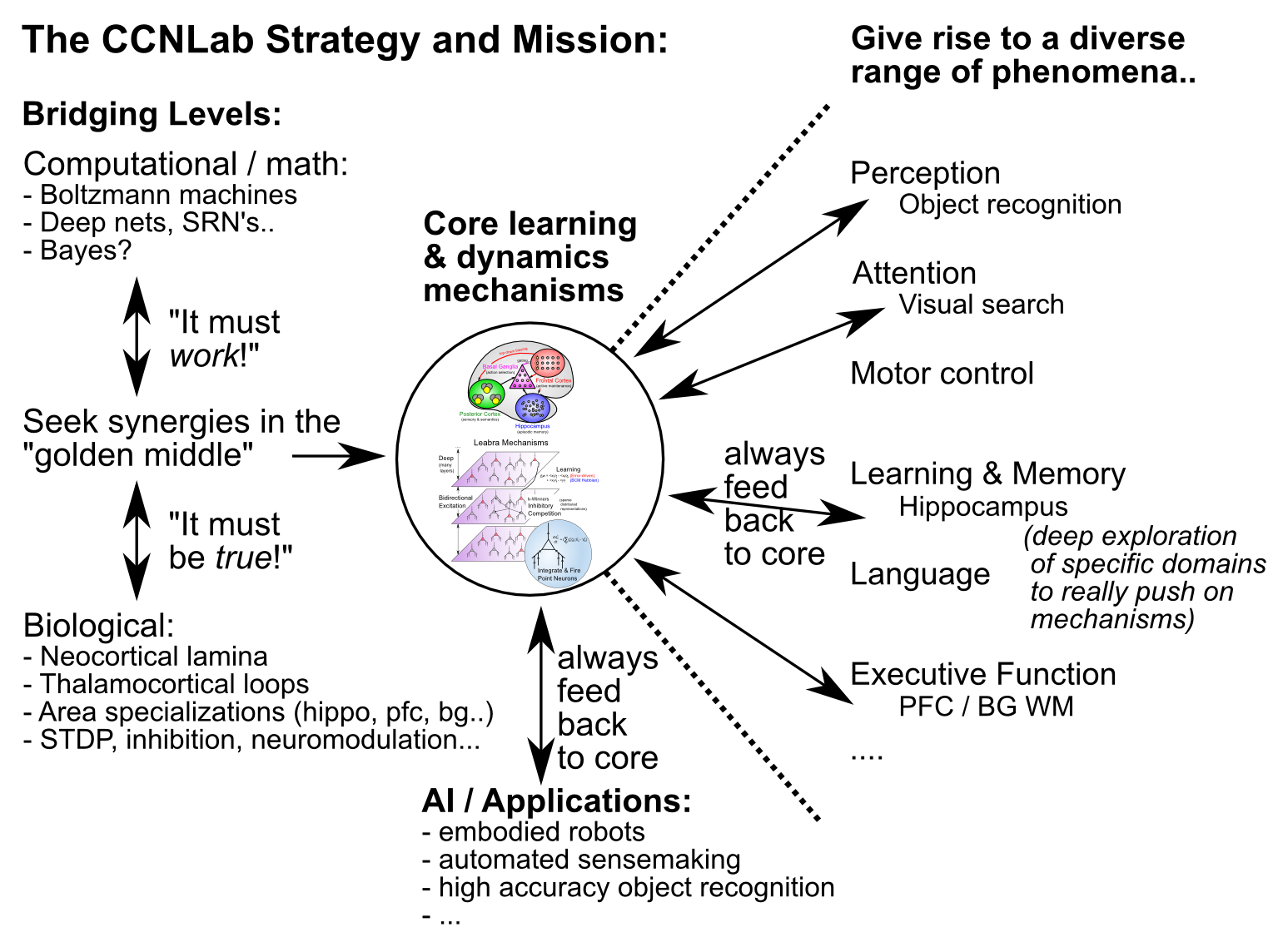last updated 6/29/2014
The Publications page offers an up-to-date summary of recent lab publications. The CCN Online Textbook provides an overview of our approach in the first chapter and extensive mentions of prior research.
Overall Approach

This figure summarizes the overall strategy and mission of the CCNLab. We develop and refine a core set of computational mechanisms that capture the underlying functional properties of the major brain areas (neocortex, hippocampus, basal ganglia, cerebellum, brainstem neuromodulatory areas, etc), and use these mechanisms to understand a wide range of different cognitive and behavioral phenomena. These small set of core mechanisms give us great leverage in terms of how wide a range of distinct phenomena we can explain. We delve deeply into specific domains, to provide a stringent and informative test of these mechanisms, and apply what we learn back to refining and further developing our core set of computational mechanisms. Critically, we eschew the common practice of introducing specific mechanisms that explain specific phenomena in a given domain, in a transparent and simple(istic) manner, in favor of leveraging our core mechanisms, which depend critically on learning as the major source of cognitive function. If we cannot explain how the brain learns to perform a specific cognitive function using domain general, biologically-based learning mechanisms, then we have failed.
In terms of levels of analysis, we seek a synergy between higher-level computational and mathematical principles (which ensure that our models work – they do powerful, efficient forms of learning and information processing), and the underlying biology of the brain areas in question (which ensures that our models are capturing important aspects of the true function of the brain – not just wishful thinking or purely artificial intelligence). We have repeatedly found such synergies, where important computational principles that enable powerful forms of learning and processing can be directly tied to specific biological mechanisms. Fundamentally, we believe that the brain is a powerful learning and information processing mechanism, and with the right computational lens, we can understand what the detailed biology is doing to achieve these functions.
Our primary goal is scientific: we seek to understand our own brains. But we also believe that in so doing, particularly with our computationally-focused approach, we will be capable of replicating the incredible power of our brains in artificial systems. Thus, we are very interested in developing practical applications of our systems, where applicable, and have found that a deep exploration of model performance on specific tasks of practical interest can be very informative for feeding back into the development of our core computational mechanisms. Ultimately, we believe that our work can contribute to the development of a complete whole-brain model that exhibits human-scale (and beyond!) cognitive abilities. Furthermore, we believe that our approach is the most likely to get there first.
All Pages
Recent Changes
| Page | Date Modified |
|---|

